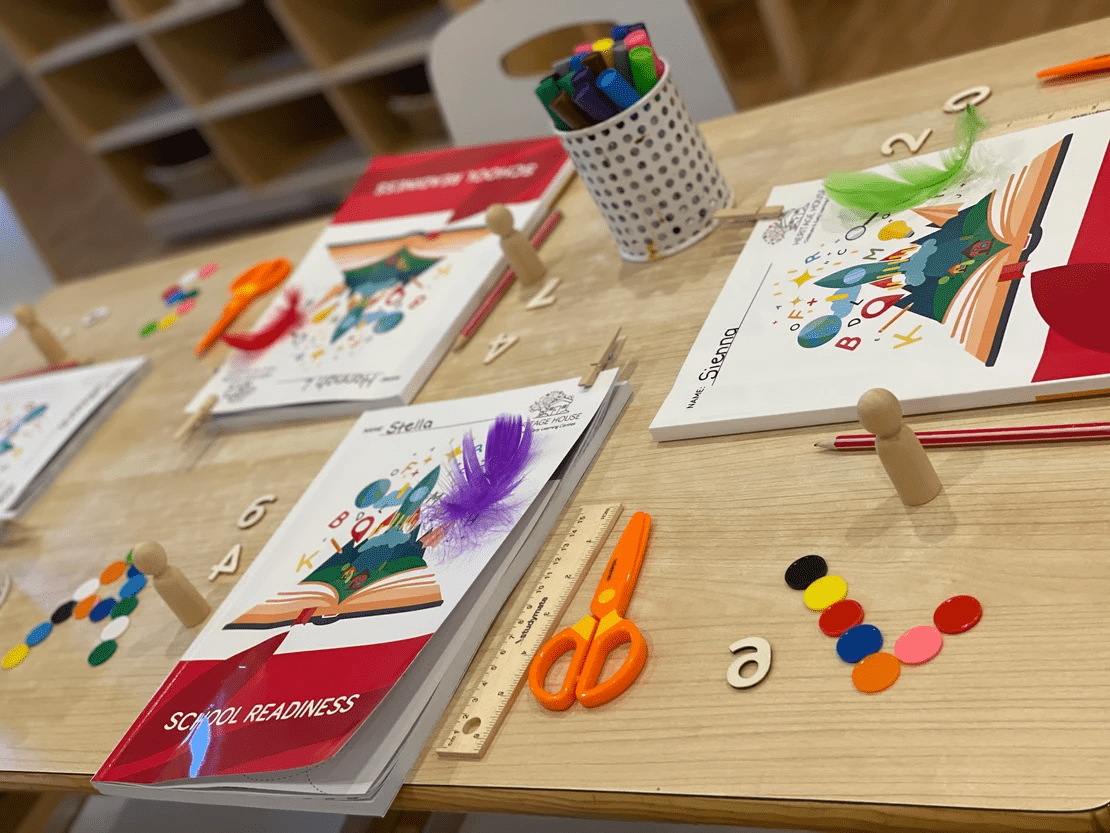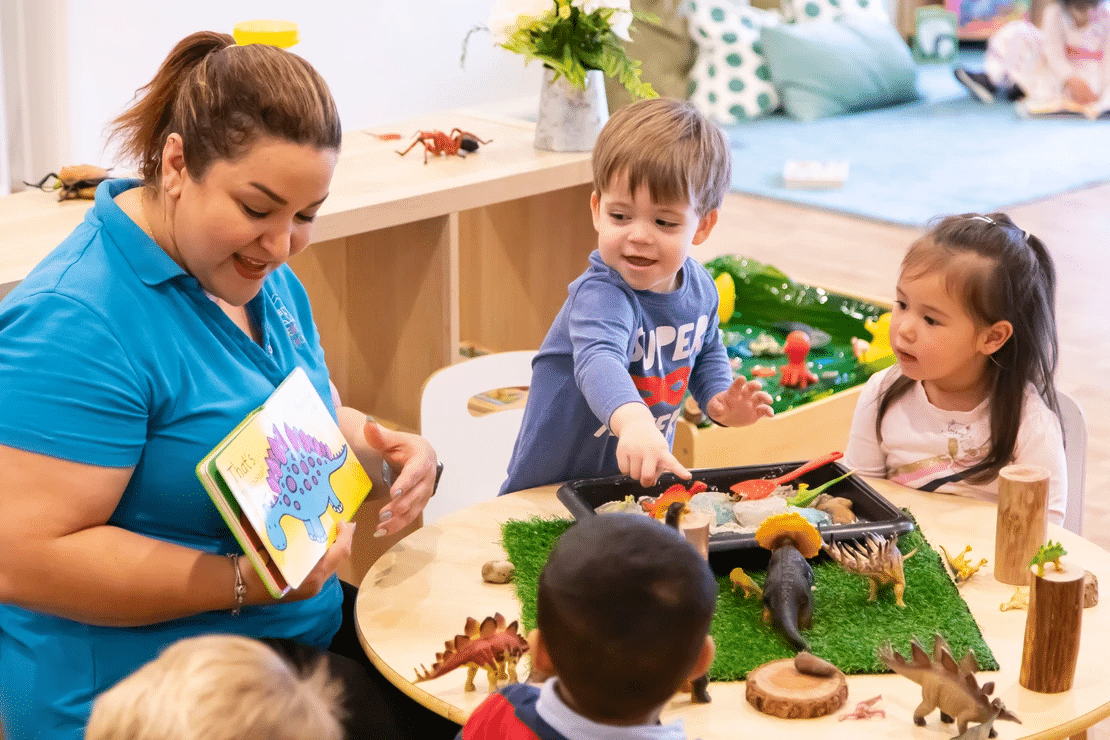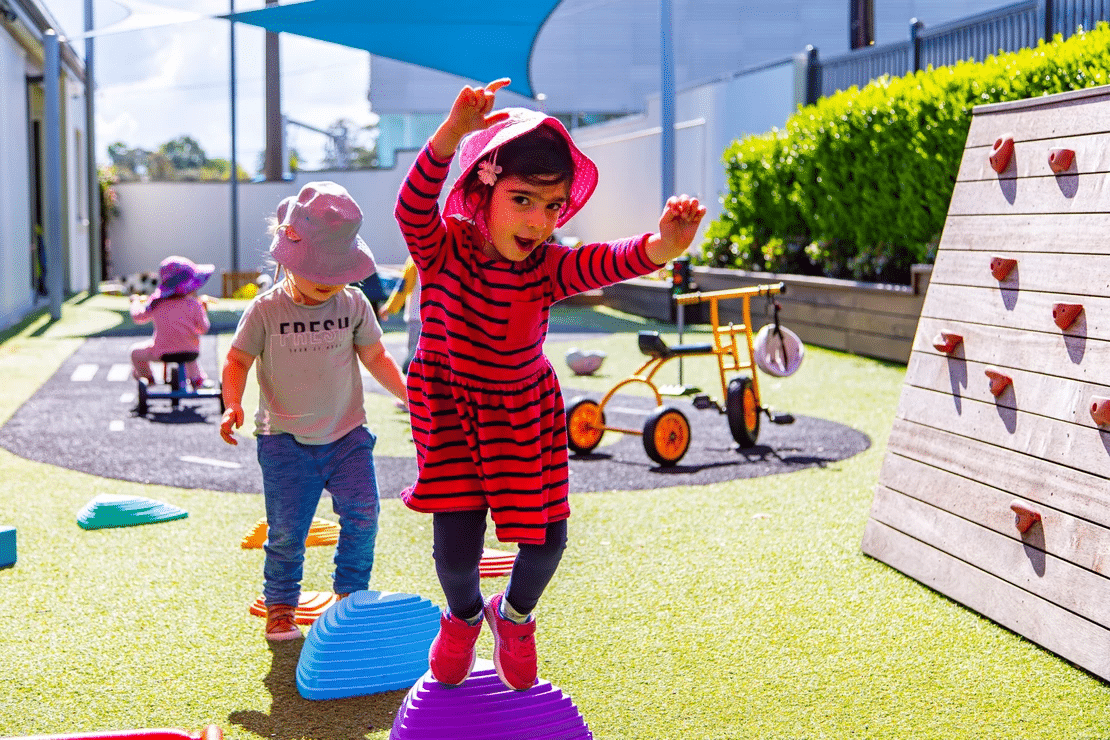 Book a Tour
Book a Tour Instagram
Instagram Contact Us
Contact Us CCS Estimator
CCS Estimator
At Heritage House Childcare & Early Learning Centres, we know what it takes to provide quality care and education to our children and families. Our specialised approach to Childcare and Early Learning sets us apart from the rest. We believe that a comprehensive and holistic School Readiness Program is an essential part of a child’s learning experience and essential when transitioning to school. Our School Readiness Program works in conjunction with a range of other activities that have been planned to meet children’s developmental needs.
But what does school readiness really mean?


School readiness is a measure that can often vary to each person, depending on what role they play in a child’s life. Many mistakenly think that school readiness is all about academics and the intellectual side of development. However, if we look at it holistically, school readiness is a measure of the knowledge, skills and behaviours that enable children to participate and succeed in school. This includes social, emotional, physical and communication skills, which enable children to participate and thrive in a group of their peers. Play-based learning has many benefits and it’s not just for children transitioning to school, but for children of all ages. You will find that the school readiness journey begins within the first year of your child’s life.
Quality early education and care lays the foundation for development and learning. Two of the major influences on quality in childcare are the qualifications of educators and ratios of qualified educators to children. Higher numbers of educators to children allow qualified educators to give more individual care and attention to your child, which helps them to develop better social and learning skills. Also, educators develop more effective and meaningful relationships with your child to help make sure they are engaged, happy and relaxed. Childcare centres with higher ratios, like Heritage House, provide a better foundation for a child’s learning and development journey.
As school readiness is based on a child’s knowledge, skills, confidence and behaviours, it is important to remember that each child develops at his or her own pace. There is no single school readiness test that will accurately determine whether a child is ready for school. A school readiness program will just help ensure children are better prepared to handle the challenges they face when starting school. Research shows that children who start school when developmentally ready to learn tend to do better in school – and it sets them up for further success later in life.

Here is an example of a school readiness checklist aligned with the Early Years Learning Framework (EYLF) to help you understand what needs to be worked on so they can start school successfully.
Social Skills:
Communication Skills:
Motor Skills:
Independence Skills:
Intellectual Skills:

In early childhood education, we give children opportunities to feel capable, and demonstrate through words and actions that they are valued and appreciated. At home, you can do the same. Here are some tips for getting your child school-ready.

Our goal at Heritage House is to ensure children graduate from our School Readiness Program fully prepared and confident for their next educational step. The transition from preschool to kindergarten can be a daunting situation, for both the child and the parents. To help our Heritage House families make the start of school a success, we have prepared our new School Readiness book, which can be seen in-centre.
If you’d like to know more about our School Readiness Program and how we prepare children for success at school, call your local Heritage House centre or contact us online.